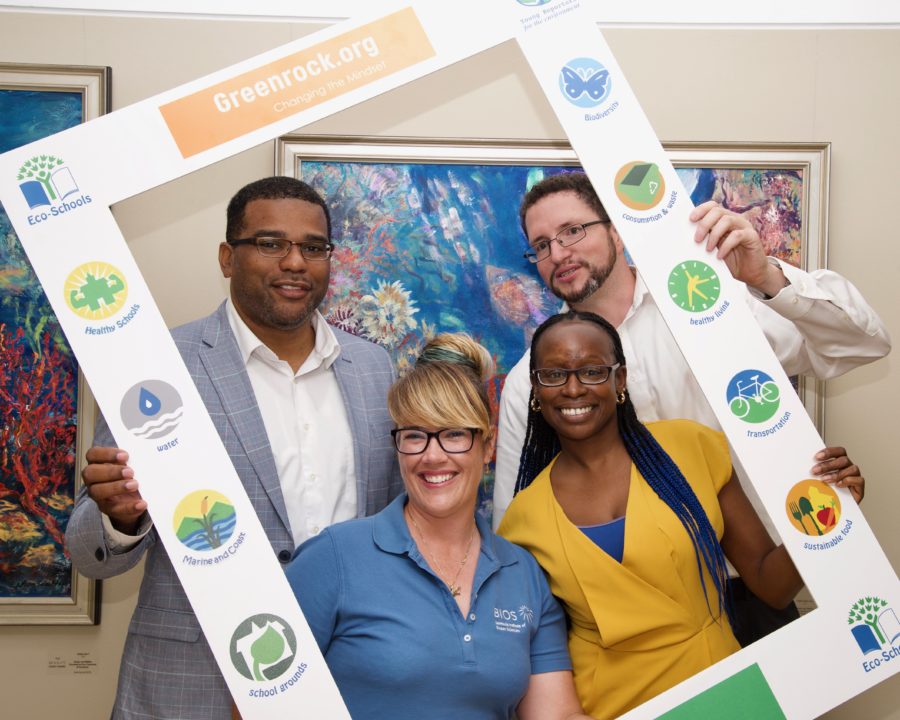Breaking down Eco-Schools in Bermuda
“How green can you go?” asks Davida Morris, School Programme Manager for Eco-Schools at Greenrock. As the green movement becomes less of a trend and more of a way of living, the programme continues to gain major traction, challenging how schools are treating the environment and offering guidance through the journey to sustainability.
The programme not only teaches about the costs of unsustainable ways but encourages students to use the power that they have to protect their immediate environment and its future.
To give an idea of its reach, this program was created by the Foundation for Environmental Education (FEE) and is currently 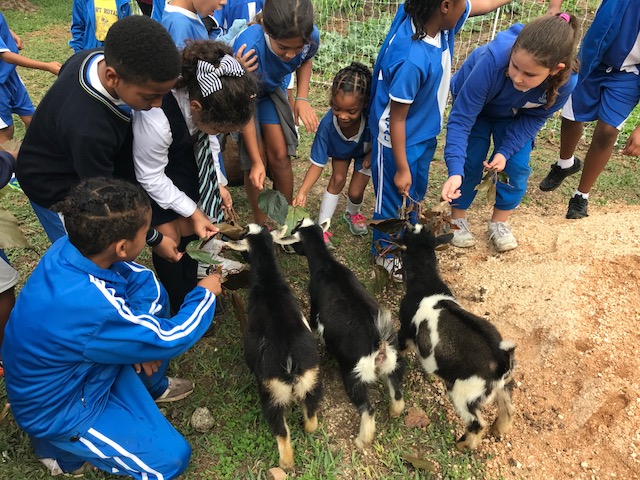 implemented in 55 countries, involving 46,000 schools. It’s recognized by the United Nations as a model initiative for Education for Sustainable Development.
implemented in 55 countries, involving 46,000 schools. It’s recognized by the United Nations as a model initiative for Education for Sustainable Development.
This holistic programme is geared to schools with children between the ages of 11 and 21, but encourages everyone to get involved, from teachers to parents, friends and family. “Children are the perfect ambassadors,” says Morris. “Adults have more factors to look at (cost-effectiveness, customs, habits, and comforts, etc.) but children have no biases. They just look at the facts, there’s less of a debate there. They’re just thinking about what’s good for the environment.”
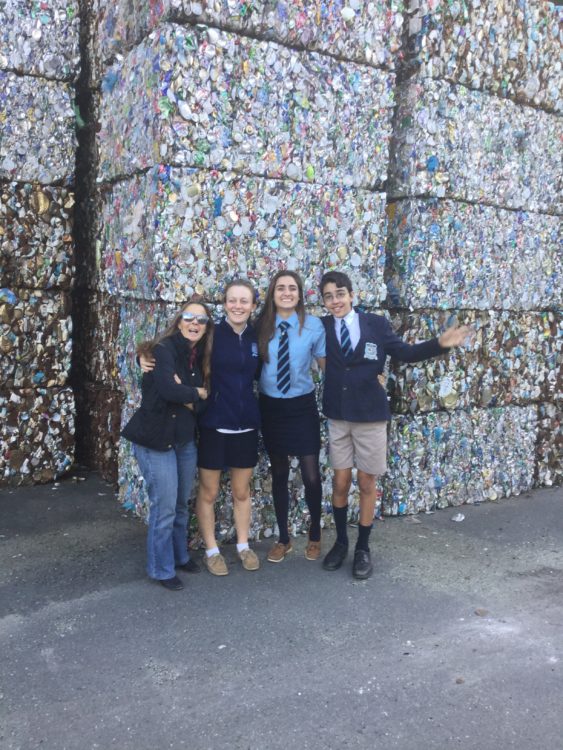 Eco-Schools is divided into 10 different pathways or themes that are followed to sustainability. Schools who have committed to this green philosophy, prepare themselves to take one pathway per year. Focusing on one theme means addressing all of its components, including changing behavior and infrastructure. Schools can choose from the following pathways:
Eco-Schools is divided into 10 different pathways or themes that are followed to sustainability. Schools who have committed to this green philosophy, prepare themselves to take one pathway per year. Focusing on one theme means addressing all of its components, including changing behavior and infrastructure. Schools can choose from the following pathways:
- Water
- Biodiversity
- Transport
- Energy
- Healthy Living
- Waste & Litter
- Healthy Schools
- School Grounds
- Sustainable Food
- Marine & Coast
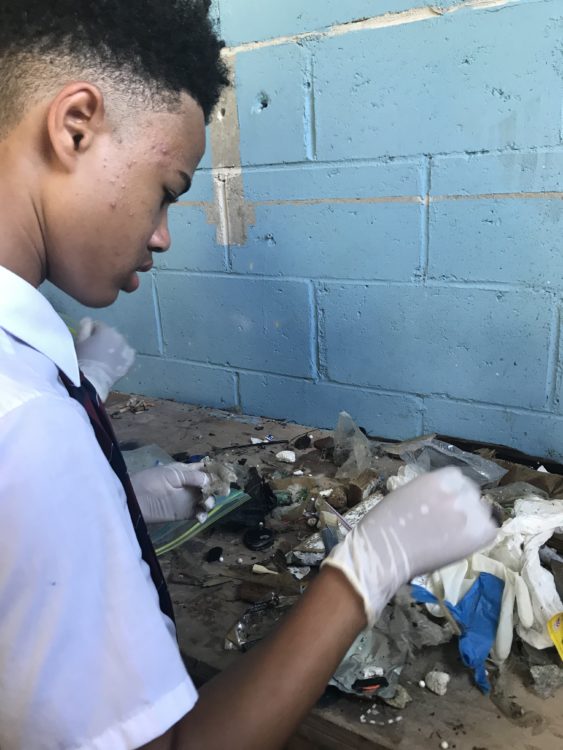 Greenrock works with the schools to follow a strict path that, in the end, brings together a robust portfolio showcasing their eco-work. The path looks something like this:
Greenrock works with the schools to follow a strict path that, in the end, brings together a robust portfolio showcasing their eco-work. The path looks something like this:
- Form an eco-club
Greenrock offers to assist in creating a Green Team, a point of contact between the organization and school and a committee that keeps the programme running all year long.
- Conduct an environmental audit
The Greenrock team comes into the school to help the school answer the questions “Where are we right now with respect to our specific pathway?”
- Action plan
The action plan engages the territory of what needs to be done to improve the sustainability of the school.
- Monitor and evaluate
This is done consistently over the course of the program to give the opportunity to see if the action plan is actually working. “It’s not enough to just make a plan. We have to know that it’s working in the real world,” says Morris.
- Integrate into curriculum
The ideas are not just dumped but integrated to fit well into whatever the teachers are doing. Eco-Schools programme cuts across subjects – not just math and science, but physical education and social studies. It must be evident in two different subjects in two different year groups in the school to be considered for an Eco-School award.
- Inform and involve
The programme encourages children to share the information with friends, family and the greater community. “We cannot create greater change if the information stays with the individual.”
- Eco code
Students are tasked with coming up with a way to relate their school’s pathway to the rest of the world. That can look like a school motto, a poem, a song or a rap. For example, Dellwood Middle School came up with “Slam Dunk the Junk,” a motto that illustrates their journey following the waste pathway.
From Somersfield Academy: “We are very happy to have had their support and partnership through this process of becoming Bermuda’s first Green Flag Eco-School. There are eight pathways to choose from locally and Somersfield has chosen to do the Grounds pathway and the Trash and Waste Reduction pathway. “Along the way, we have learned many things about our school community and continue to seek input from our community members to become an even more sustainable place.”
Bermuda’s schools do not currently have a recognized, integrated environmental education program that promotes long-term, whole-school (students, teachers, parents, community) action for sustainability. According to the Center for Green Schools,a green school can improve student performance and health, while decreasing operational costs and energy demands, protecting the environment.
- Improves students’ mood by feeling a part of their immediate environment.
- Provides an understanding of the costs of continuing in unsustainable ways.
- Involves individuals in successful change, increasing their sense of self-efficacy.
- Instills the desire to take on responsibility for the environment.
- Provides the tools to make the appropriate changes.
- Empowers individuals to take the necessary steps to protect the future.
- Major cost-savings for the schools involved in the programme.
Once the school has registered and implemented these seven steps it can apply for an Eco-Schools Award. The latest Eco-Schools were presented their awards for the 2017/2018 year on June 13, 2018, at CHUBB.
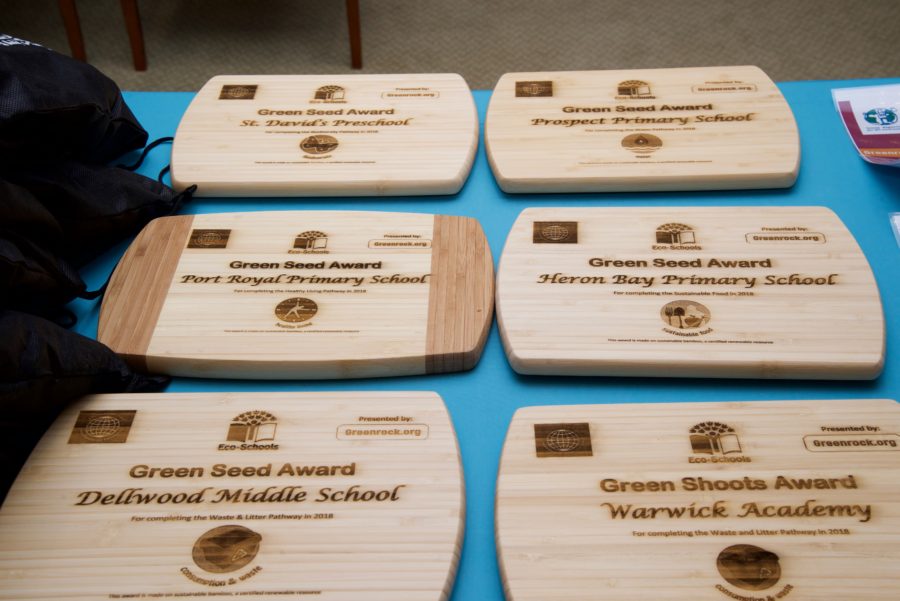 Green Seed Award (For completion of First Pathway)
Green Seed Award (For completion of First Pathway)
St. David’s Preschool – Biodiversity
Prospect Primary – Water
Port Royal Primary – Healthy Living
Heron Bay Primary – Sustainable Food
Dellwood Middle School – Waste & Litter
Bermuda High School for Girls – Waste & Litter
Kaleidoscope Arts Foundation – Sustainable Food
Green Shoots Award (For Completion of Second Pathway)
Warwick Academy – Waste & Litter
Look for the Greenrock team at their Eco Expo next Spring, where they introduce students to sustainable living concepts. Greenrock will then be happy to assist your school in forming an Eco-Club and get you on your way to a sustainable future. Email [email protected] for more information.
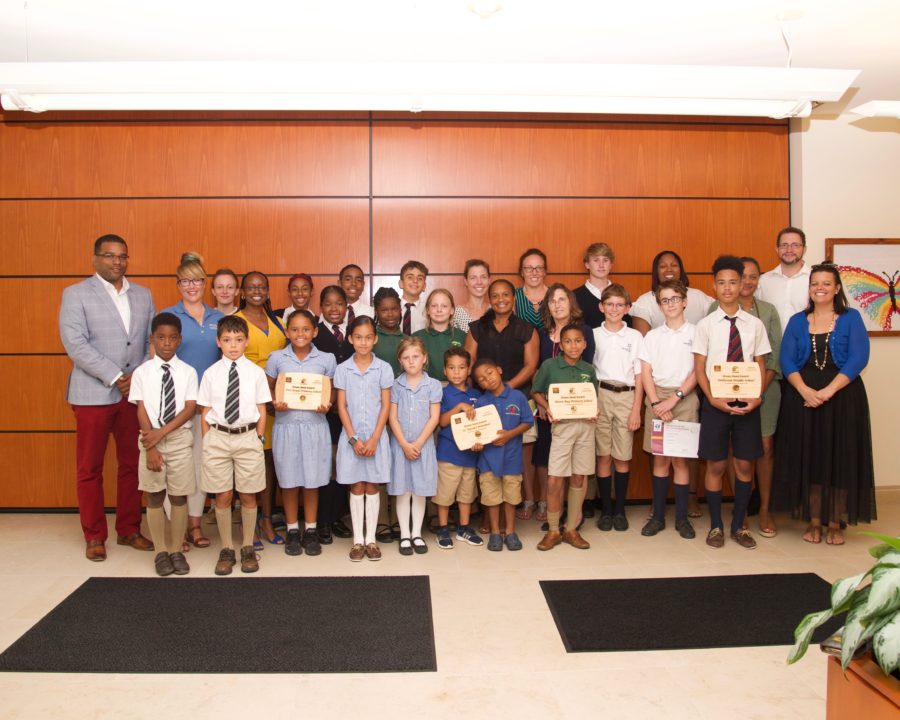 Greenrock is a registered charity, that focuses on environmental education and wider sustainability issues. They seek to generate debate and to influence people to change their behavior; striving to be catalysts to including sustainable use of resources in decision-making for individuals, governments and businesses.
Greenrock is a registered charity, that focuses on environmental education and wider sustainability issues. They seek to generate debate and to influence people to change their behavior; striving to be catalysts to including sustainable use of resources in decision-making for individuals, governments and businesses.
This article was originally published in the June Edition of the RG Green Pages supplement.

